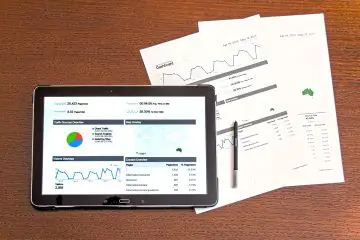Information is a precious commodity. Fortunately, in the age of digitization and mobile internet, we can access it anytime, anywhere. At the same time, this has also changed the way information is received because we humans are becoming more impatient and want faster and easier access.
This results in challenges for your content marketing. If you bore your target group with excessive content, then look for the know-how elsewhere. The quality of your content is correspondingly important – and it is closely related to the information density.
What does information density mean and why is it important?
Actually, the name is self-explanatory: It’s about how much information in your content is plugged. That means: What is really helpful information? And what about unnecessary filler sentences that only inflate the content?
This is an extremely important quality criterion. Because Google and other search engines are always on the lookout for the ideal search result in order to display it to the searcher. It is therefore important that your content contains as much information as possible in order to stand out from the crowd for Google.
At the same time, users in particular benefit from it. After all, we all don’t want to dig through endless text deserts before we find the important information. Instead, we are looking for meaningful and concisely formulated content.
A negative example of a lack of information density is e.g. B. Recipe blogs. Very long texts are often written there that are only partially helpful and necessary. A positive example, on the other hand, is encyclopedia entries, which usually contain a maximum of condensed information.
Content with a high information density, therefore, has a positive effect on the user experience – and at the same time on your ranking. It is therefore important to actively deal with it.
6 tips to increase the information density
1. Use a good keyword analysis as a basis
An extensive keyword analysis is the ideal starting point for content with a high information density to create. Here you record all search queries that are entered in search engines on your topic within clusters.
This shows you which questions exist on your topic and which subtopics are relevant to your target audience. So you can already see which content questions you definitely have to answer with your content.
2. Learn from your competition
Take a look at the top 5 search results for your topic or focus keyword. Because here you can learn a lot when it comes to information density and successful content.
Unless you serve a niche topic in which just a few random pages rank well because there are no really high-quality alternatives, you will discover high-quality ones in the first search results Content that works well.
Of course, you can learn something from here. Analyze the structure of the page, record the subtopics covered, and see what you can possibly do better.
The top content often has slight differences in their emphasis or treated subtopics. Here you can score points by simply treating all key areas equally and thus further increasing your information density.
3. Understand the search intent
Keyword is not the same as a keyword. The search for “shoes” has a completely different intention than the search for “hiking routes”. One is a transaction (purchase), and the other is information.
In order to prepare your content for the target group and to achieve the necessary information density, it is important that you understand the search intention. You have to analyze what is the intention behind a specific search query.
After all, you need to offer different content to a person who wants to make a purchase than someone who is looking for a specific piece of information. You have to design your content accordingly differently.








